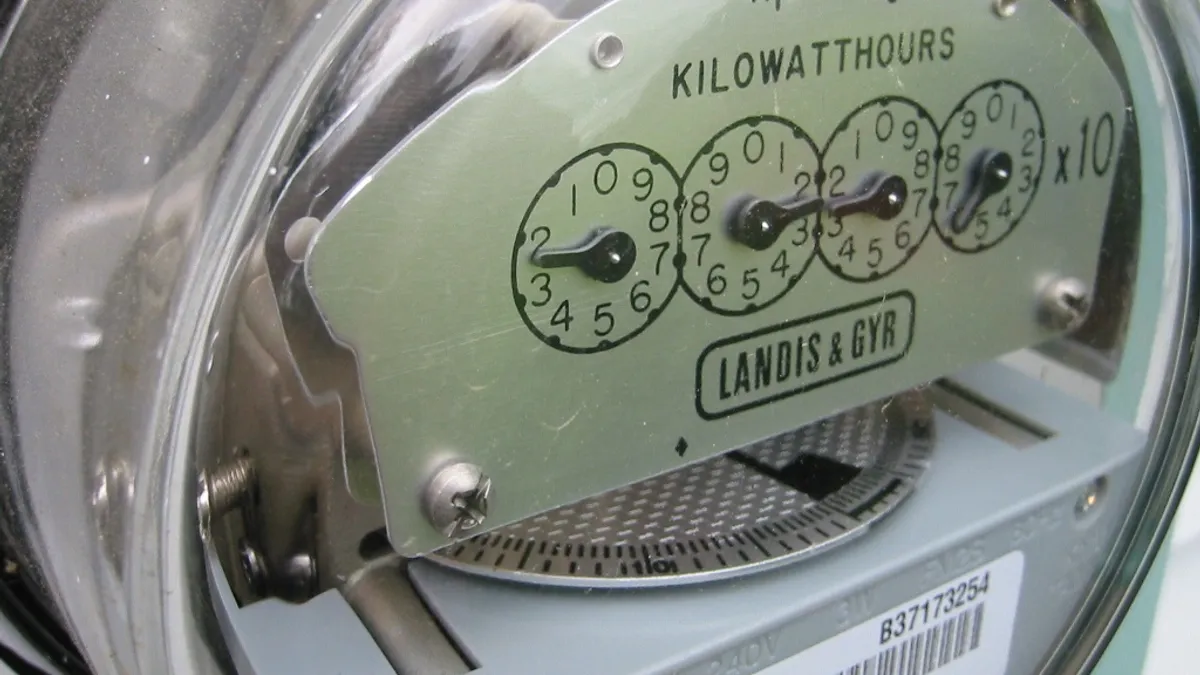Dive Brief:
- Public Service Electric and Gas Co. (PSEG) on Wednesday unveiled a $4 billion clean energy plan aimed at helping New Jersey meet aggressive environmental goals while also reducing customer bills.
- The Clean Energy Future (CEF) proposal includes investments in energy storage, smart meters and electric vehicle infrastructure, but its largest component by far is energy efficiency. The utility wants to invest $2.8 billion in efficiency, including customer rebates and other incentives, with a special focus on customer groups which have traditionally been underserved.
- In May, New Jersey Gov. Phil Murphy, D, signed legislation raising the state's renewable portfolio standard (RPS) to 50% by 2030, along with setting energy storage targets and updating its efficiency policy. PSEG officials say the CEF is designed to support those goals while lowering energy costs.
Dive Insight:
Energy efficiency makes up 70% of PSEG's clean energy plan costs, and the investment may represent a major shift in the sector.
"The single most important mission for utilities such as ours will be to help their customers use less energy," PSEG President, Chairman and CEO Ralph Izzo, said on a media call to discuss the proposal.
While energy efficiency has been growing in importance for years, Izzo's comment is a stark reminder that not so long ago utilities were focused on selling as much energy as possible to boost their bottom line.
Now, PSEG is proposing to invest $2.8 billion in an array of rebates and other financial incentives for customers to purchase more efficient appliances and to provide energy audits, reports and other efficiency tools. The utility says it will result in customer savings of $5.7 billion, improved air quality and public health and a smaller carbon footprint for the Garden State.
"We're not prone to hyperbole," said Izzo while presenting what he claimed to be "one of the most significant advances in New Jersey energy policy."
The plan will include "historic investments in energy efficiency, electric vehicle charging infrastructure, utility-scale storage capabilities and technology that will help PSEG to make great leaps forward in reliability and resiliency," said Izzo.
All told, PSEG believes the CEF programs will produce $7.4 billion in customer savings.
PSEG is proposing to spend $180 million on its energy storage program, adding 35 MW of storage capacity over six years. The utility did not give details on project specifics but described five different storage program types: solar smoothing, distribution deferral, mobile storage for outage management, microgrids for critical facilities and peak reduction for public sector facilities.
The energy legislation Murphy signed earlier this year calls for New Jersey to have 2,000 MW of energy storage by 2030. PSEG says its plan will put the state on track to meet that and the 2021 interim goal of 600 MW.
PSEG is also investing in smart meters, calling this tranche of the program the "energy cloud." The program will produce $1.7 billion in customer savings and operational benefits over 20 years, according to the utility — off an $800 million investment. If approved, the utility intends to replace all 2.2 million meters in its territory with smart meters by 2024.
The utility believes the state's relatively low adoption of electric vehicles can be traced back to a lack of charging infrastructure. PSEG said it wants to invest $364 million electric vehicle infrastructure, "supporting nearly 40,000 EV chargers, the bulk of which are for residential use."
The infrastructure push will also include mixed-use and public DC fast-charging. And PSEG will provide support grants for school districts to purchase electric busses.
The program will "also help fund electrification projects for larger fleets at customer locations like our ports, airports and transit facilities," PSE&G President Dave Daly said on the conference call.
About 52% of New Jersey's greenhouse gas emissions come from motor vehicles, Daly said.
PSEG filed its plan on Wednesday with the New Jersey Board of Public Utilities, which will need to approve the CEF plan.
The American Council for an Energy-Efficient Economy (ACEEE) last year ranked New Jersey 23rd in energy efficiency, with the utility sector scoring only 3.5 out of a possible 20 points. ACEEE's analysis pointed to a pattern of the state's societal benefit charge being re-allocated to pay state energy bills rather than fund efficient programs.
ACEEE will update its rankings next week, however, and said in a statement that this 12th edition of the scorecard "provides plenty to celebrate at the state level, such as the rollout of ambitious plans to ramp up savings in states including New Jersey, New York and Virginia."















